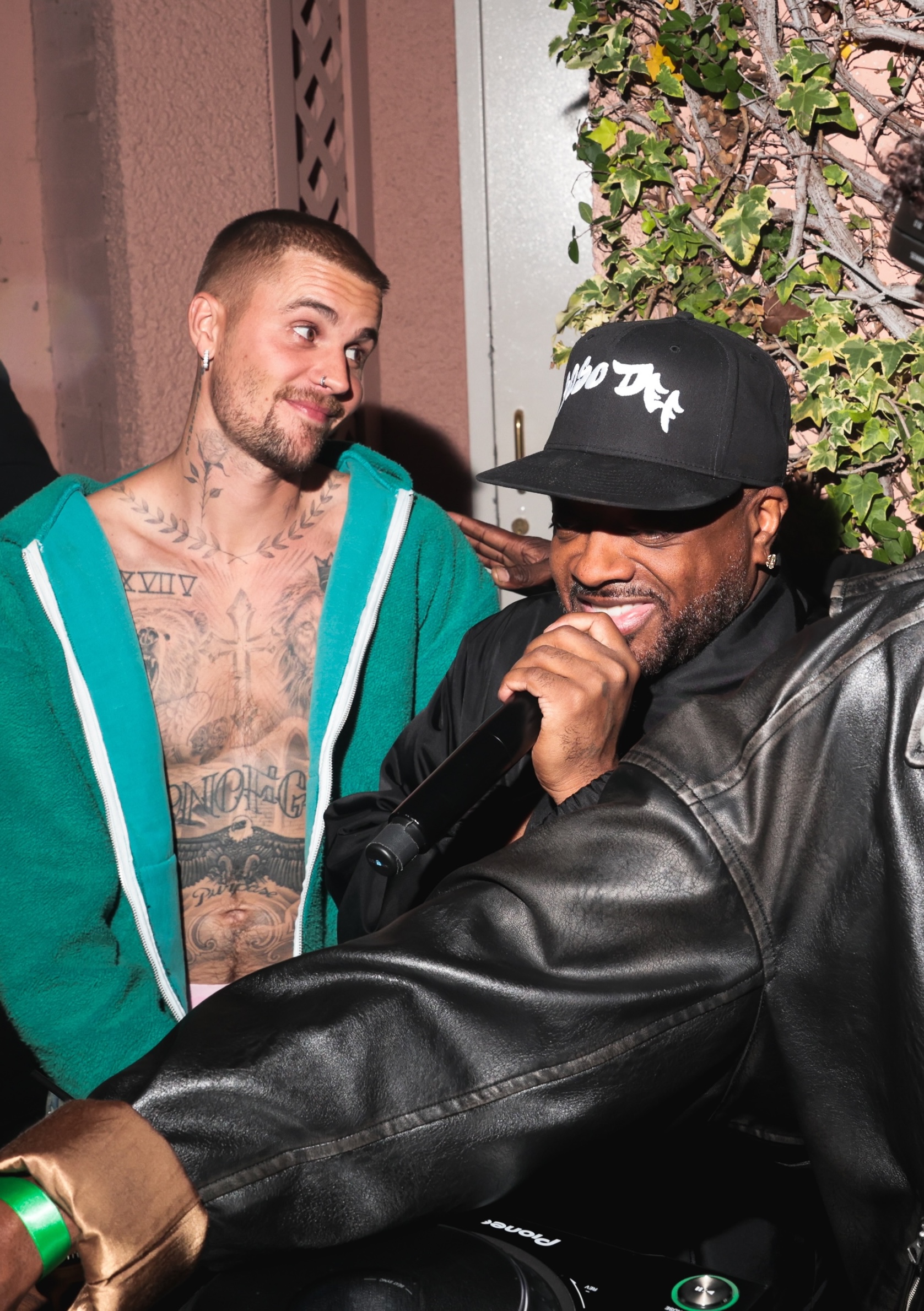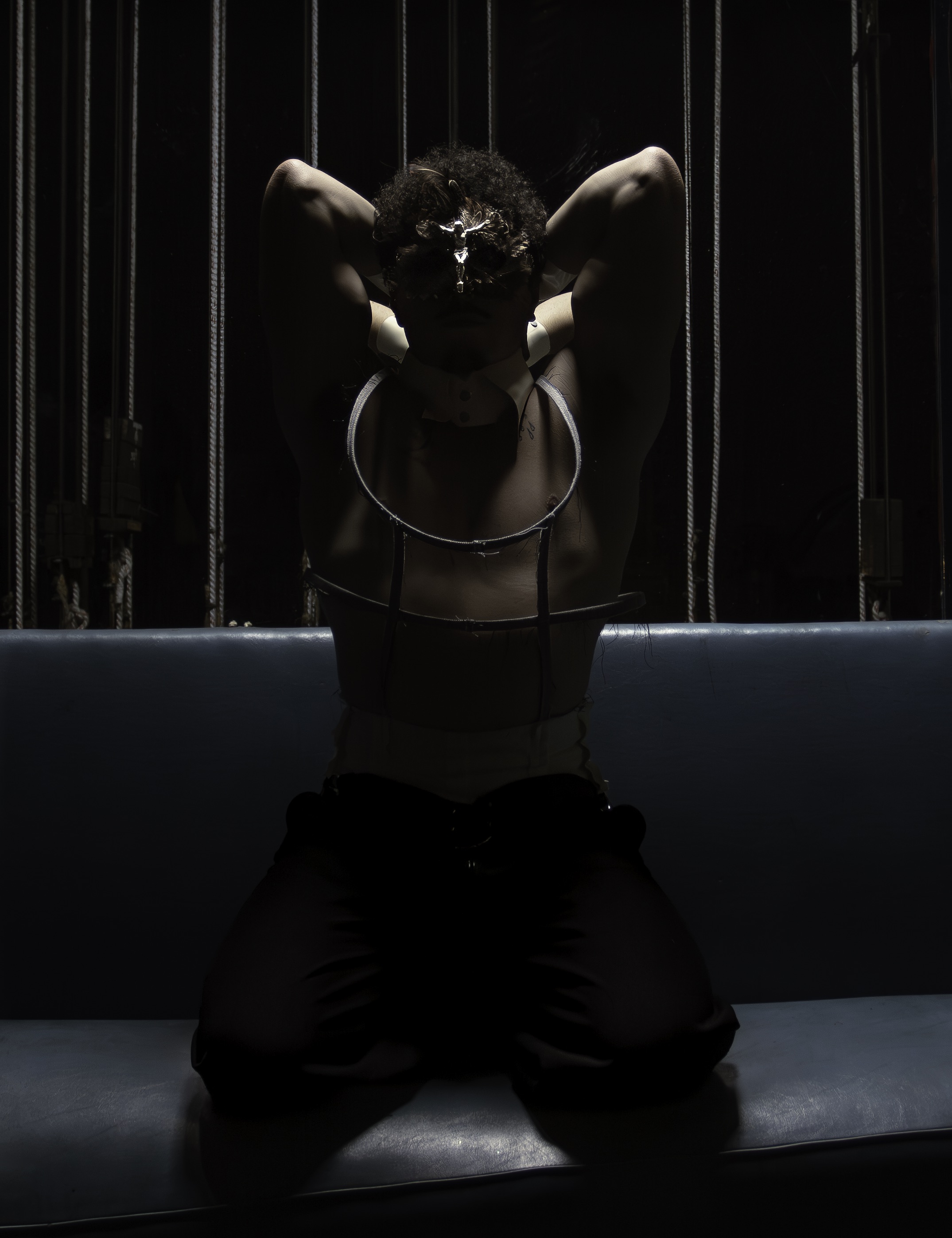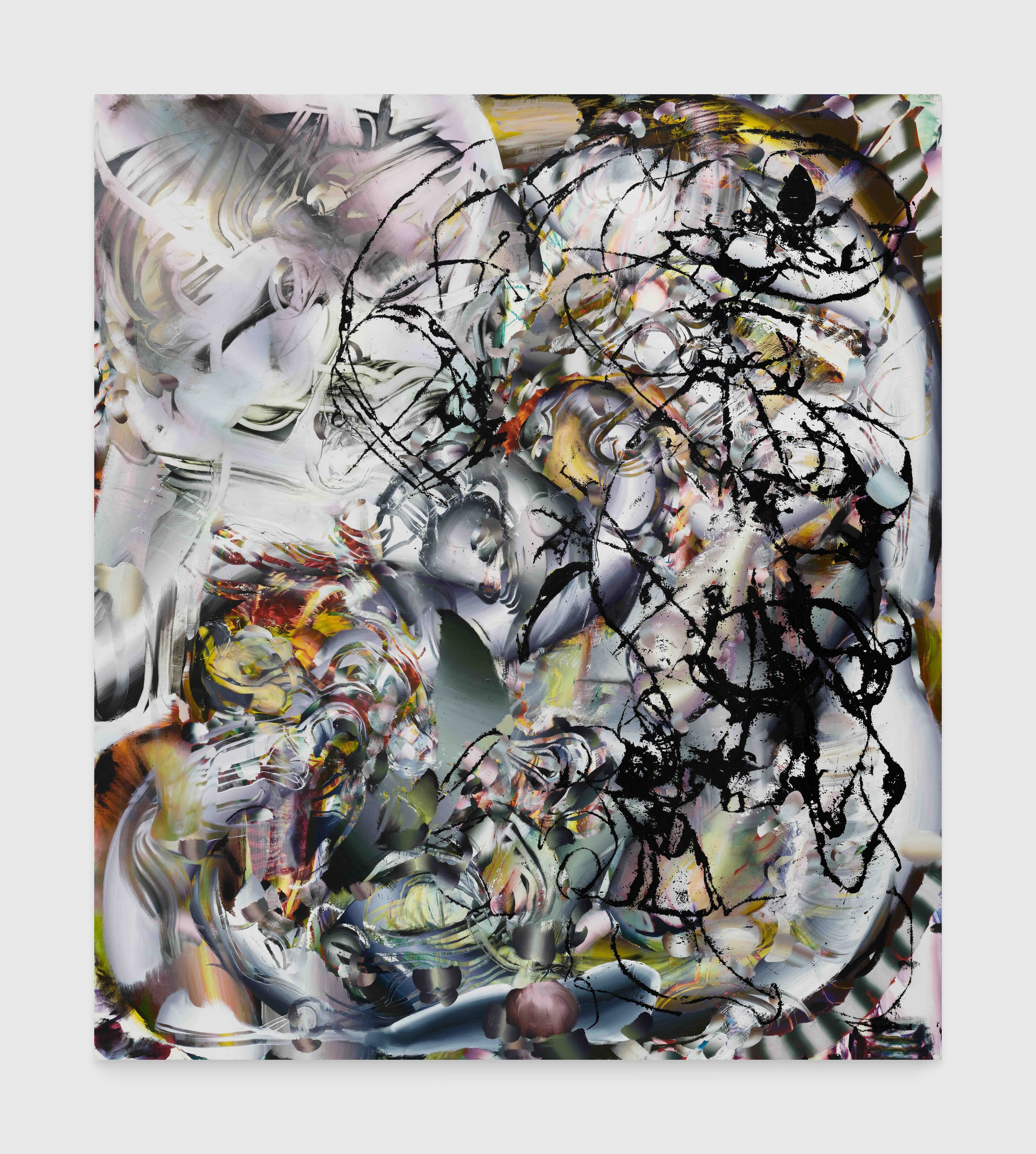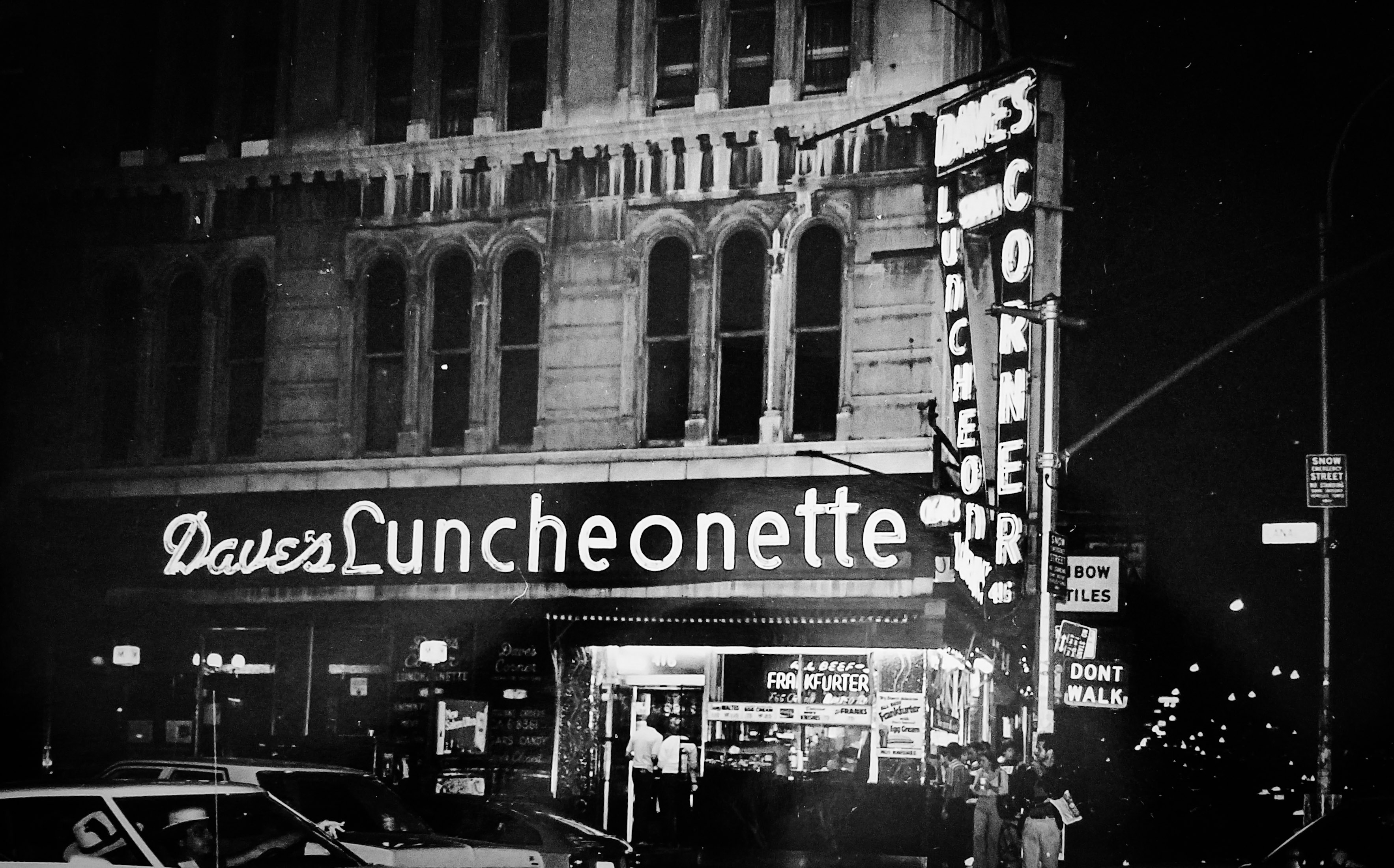

### “So I have seen America, from the very bottom to the very top, and even though I grew up black, poor, queer—a damn-near orphan—I’ve never lived in the margins of anything. I’ve always been right in the center of my fucking experience.”
This is Casey Gerald, borrowing from Kendrick Lamar (_I’m not on the outside looking in/ I’m not on the inside looking out/ I’m in the dead fucking center, looking around)._ We’re discussing his recently published memoir, a kaleidoscopic subversion of the typical rags-to-riches tale titled [_There Will Be No Miracles Here_](https://www.penguinrandomhouse.com/books/549841/there-will-be-no-miracles-here-by-casey-gerald/9780735214200/) (out now via Penguin). His story is striking in how closely it _could have_ followed the established conventions of modern American mythology: the kid with nothing overcomes seemingly insurmountable obstacles to stand at the top of the American pyramid and consider how far away the bottom really is. This story typically ends with a triumphant call to action, a tidy moral, anything that reassures those at the bottom that the American Dream is still achievable, given enough hard work. But _There Will Be No Miracles Here_ takes issue with the entire premise: that the American Dream, as usually formulated, is worth pursuing. For Gerald, at least, there is something rotten at the core of it.
Growing up poor, black, and gay in a troubled Texas town, Gerald’s childhood was rife with challenges of all the worst varieties: violence, fear, shame, lack, abandonment. His parents were anything but stable fixtures in his youth, good food was more a privilege than an expectation and, at one point, his family was violently tied up and robbed in his own home. I could go on, but we’re straying from Gerald’s thesis.
I ask Gerald what he cites as the catalyst for his ascent. “I was in 5th grade. My dad fell back into addiction. My mother suffered from mental illness and started disappearing. My response as a kid was to try to irradiate all imperfections from myself.” He was largely successful, though in retrospect, he realizes these _imperfections_ could just as well be called _idiosyncrasies_. “I started building this muscle to please people around me so I could have somewhere to stay, so I could have some food, so people would leave me alone. I was rewarded for that.” These rewards came in the form of all the standard landmarks of an American success story—Yale Undergrad, Harvard Business School, a few Wall Street powerhouses, shaking hands with presidents. When he tells me this, though, his tone suggests defeat rather than triumph.
There’s an anecdote in _Miracles_ wherein Gerald recounts a brief interaction with the then-president of the United States, George W. Bush, who later recounted the same brief interaction in very much the same way most powerful white men with whom Gerald spent some time recounted his story: by weaving a parable of the poor, black, queer, orphan boy (they tended to embellish) who pulled himself up by the bootstraps, all the way to the company of the American elite. Incidentally, here’s a related quote from _Miracles_: “If you catch it from the right angle, a boy pulling himself up by the bootstraps looks just like a suicide.” The book makes clear that the American Dream, to be achieved, demands its pound of flesh.
“I started the book because I had achieved all these things, everything a kid is supposed to achieve in America. But I was really cracked up. I wouldn’t say I was necessarily having a nervous breakdown, but I wasn’t too far off. And I was awful sad, either way. And obviously the world was cracked up; this was in 2016. So I set out to trace the cracks.” He is speaking not only of the cracks that probably come to mind—the crumbling political system, for example—but also of the cracks that form in those who play along, of all the degradations and concessions that are elided in the standard recounting of the “rags to riches” story.
This is what makes _Miracles_ so uniquely important; at root, this is a critique of the American Dream from the rare perspective of someone who has mastered its format, and achieved great success within its framework. But Gerald has come away from this experience feeling like the system was never built with someone like him in mind. His ascent is a fluke rather than a model; he refers to himself as a “glitch in the American Machine.”
So, what’s the takeaway? “What I’m saying with this book is that we are in the early days of a beautiful and dangerous revolution as it pertains to the terms by which we live in the world. It’s gonna start with each of us saying, I’m not going to kill myself to fit somebody else’s standard of living,” he tells me. This is Gerald extemporizing, by the way. He possesses an intimidating intelligence. “You could take the raw materials of my life and spin a story about the American Dream being awesome, if that’s what you want to do. And that is, of course, what many people do want to do; they wanna take my story— which the structure of America is not designed to produce—and use it to distract us from the fact that there’s a conveyor belt leading most people from nothing to nowhere. What I try to do with the book is give you as clinical a report as possible on how America actually works. I’m not gonna be complicit in leading other kids down a dead-end road.”
The cracks Gerald set out to trace are even deeper now than they were in 2016. There are many ways we could go about filling them. The one that may be most effective in this moment: taking some time to consider his story.
* * *
Photographed by [Tracey Nguyen](https://www.instagram.com/tracythnguyen/?hl=en)
 
### “So I have seen America, from the very bottom to the very top, and even though I grew up black, poor, queer—a damn-near orphan—I’ve never lived in the margins of anything. I’ve always been right in the center of my fucking experience.”
This is Casey Gerald, borrowing from Kendrick Lamar (_I’m not on the outside looking in/ I’m not on the inside looking out/ I’m in the dead fucking center, looking around)._ We’re discussing his recently published memoir, a kaleidoscopic subversion of the typical rags-to-riches tale titled [_There Will Be No Miracles Here_](https://www.penguinrandomhouse.com/books/549841/there-will-be-no-miracles-here-by-casey-gerald/9780735214200/) (out now via Penguin). His story is striking in how closely it _could have_ followed the established conventions of modern American mythology: the kid with nothing overcomes seemingly insurmountable obstacles to stand at the top of the American pyramid and consider how far away the bottom really is. This story typically ends with a triumphant call to action, a tidy moral, anything that reassures those at the bottom that the American Dream is still achievable, given enough hard work. But _There Will Be No Miracles Here_ takes issue with the entire premise: that the American Dream, as usually formulated, is worth pursuing. For Gerald, at least, there is something rotten at the core of it.
Growing up poor, black, and gay in a troubled Texas town, Gerald’s childhood was rife with challenges of all the worst varieties: violence, fear, shame, lack, abandonment. His parents were anything but stable fixtures in his youth, good food was more a privilege than an expectation and, at one point, his family was violently tied up and robbed in his own home. I could go on, but we’re straying from Gerald’s thesis.
I ask Gerald what he cites as the catalyst for his ascent. “I was in 5th grade. My dad fell back into addiction. My mother suffered from mental illness and started disappearing. My response as a kid was to try to irradiate all imperfections from myself.” He was largely successful, though in retrospect, he realizes these _imperfections_ could just as well be called _idiosyncrasies_. “I started building this muscle to please people around me so I could have somewhere to stay, so I could have some food, so people would leave me alone. I was rewarded for that.” These rewards came in the form of all the standard landmarks of an American success story—Yale Undergrad, Harvard Business School, a few Wall Street powerhouses, shaking hands with presidents. When he tells me this, though, his tone suggests defeat rather than triumph.
There’s an anecdote in _Miracles_ wherein Gerald recounts a brief interaction with the then-president of the United States, George W. Bush, who later recounted the same brief interaction in very much the same way most powerful white men with whom Gerald spent some time recounted his story: by weaving a parable of the poor, black, queer, orphan boy (they tended to embellish) who pulled himself up by the bootstraps, all the way to the company of the American elite. Incidentally, here’s a related quote from _Miracles_: “If you catch it from the right angle, a boy pulling himself up by the bootstraps looks just like a suicide.” The book makes clear that the American Dream, to be achieved, demands its pound of flesh.
“I started the book because I had achieved all these things, everything a kid is supposed to achieve in America. But I was really cracked up. I wouldn’t say I was necessarily having a nervous breakdown, but I wasn’t too far off. And I was awful sad, either way. And obviously the world was cracked up; this was in 2016. So I set out to trace the cracks.” He is speaking not only of the cracks that probably come to mind—the crumbling political system, for example—but also of the cracks that form in those who play along, of all the degradations and concessions that are elided in the standard recounting of the “rags to riches” story.
This is what makes _Miracles_ so uniquely important; at root, this is a critique of the American Dream from the rare perspective of someone who has mastered its format, and achieved great success within its framework. But Gerald has come away from this experience feeling like the system was never built with someone like him in mind. His ascent is a fluke rather than a model; he refers to himself as a “glitch in the American Machine.”
So, what’s the takeaway? “What I’m saying with this book is that we are in the early days of a beautiful and dangerous revolution as it pertains to the terms by which we live in the world. It’s gonna start with each of us saying, I’m not going to kill myself to fit somebody else’s standard of living,” he tells me. This is Gerald extemporizing, by the way. He possesses an intimidating intelligence. “You could take the raw materials of my life and spin a story about the American Dream being awesome, if that’s what you want to do. And that is, of course, what many people do want to do; they wanna take my story— which the structure of America is not designed to produce—and use it to distract us from the fact that there’s a conveyor belt leading most people from nothing to nowhere. What I try to do with the book is give you as clinical a report as possible on how America actually works. I’m not gonna be complicit in leading other kids down a dead-end road.”
The cracks Gerald set out to trace are even deeper now than they were in 2016. There are many ways we could go about filling them. The one that may be most effective in this moment: taking some time to consider his story.
* * *
Photographed by [Tracey Nguyen](https://www.instagram.com/tracythnguyen/?hl=en)

### “So I have seen America, from the very bottom to the very top, and even though I grew up black, poor, queer—a damn-near orphan—I’ve never lived in the margins of anything. I’ve always been right in the center of my fucking experience.”
This is Casey Gerald, borrowing from Kendrick Lamar (_I’m not on the outside looking in/ I’m not on the inside looking out/ I’m in the dead fucking center, looking around)._ We’re discussing his recently published memoir, a kaleidoscopic subversion of the typical rags-to-riches tale titled [_There Will Be No Miracles Here_](https://www.penguinrandomhouse.com/books/549841/there-will-be-no-miracles-here-by-casey-gerald/9780735214200/) (out now via Penguin). His story is striking in how closely it _could have_ followed the established conventions of modern American mythology: the kid with nothing overcomes seemingly insurmountable obstacles to stand at the top of the American pyramid and consider how far away the bottom really is. This story typically ends with a triumphant call to action, a tidy moral, anything that reassures those at the bottom that the American Dream is still achievable, given enough hard work. But _There Will Be No Miracles Here_ takes issue with the entire premise: that the American Dream, as usually formulated, is worth pursuing. For Gerald, at least, there is something rotten at the core of it.
Growing up poor, black, and gay in a troubled Texas town, Gerald’s childhood was rife with challenges of all the worst varieties: violence, fear, shame, lack, abandonment. His parents were anything but stable fixtures in his youth, good food was more a privilege than an expectation and, at one point, his family was violently tied up and robbed in his own home. I could go on, but we’re straying from Gerald’s thesis.
I ask Gerald what he cites as the catalyst for his ascent. “I was in 5th grade. My dad fell back into addiction. My mother suffered from mental illness and started disappearing. My response as a kid was to try to irradiate all imperfections from myself.” He was largely successful, though in retrospect, he realizes these _imperfections_ could just as well be called _idiosyncrasies_. “I started building this muscle to please people around me so I could have somewhere to stay, so I could have some food, so people would leave me alone. I was rewarded for that.” These rewards came in the form of all the standard landmarks of an American success story—Yale Undergrad, Harvard Business School, a few Wall Street powerhouses, shaking hands with presidents. When he tells me this, though, his tone suggests defeat rather than triumph.
There’s an anecdote in _Miracles_ wherein Gerald recounts a brief interaction with the then-president of the United States, George W. Bush, who later recounted the same brief interaction in very much the same way most powerful white men with whom Gerald spent some time recounted his story: by weaving a parable of the poor, black, queer, orphan boy (they tended to embellish) who pulled himself up by the bootstraps, all the way to the company of the American elite. Incidentally, here’s a related quote from _Miracles_: “If you catch it from the right angle, a boy pulling himself up by the bootstraps looks just like a suicide.” The book makes clear that the American Dream, to be achieved, demands its pound of flesh.
“I started the book because I had achieved all these things, everything a kid is supposed to achieve in America. But I was really cracked up. I wouldn’t say I was necessarily having a nervous breakdown, but I wasn’t too far off. And I was awful sad, either way. And obviously the world was cracked up; this was in 2016. So I set out to trace the cracks.” He is speaking not only of the cracks that probably come to mind—the crumbling political system, for example—but also of the cracks that form in those who play along, of all the degradations and concessions that are elided in the standard recounting of the “rags to riches” story.
This is what makes _Miracles_ so uniquely important; at root, this is a critique of the American Dream from the rare perspective of someone who has mastered its format, and achieved great success within its framework. But Gerald has come away from this experience feeling like the system was never built with someone like him in mind. His ascent is a fluke rather than a model; he refers to himself as a “glitch in the American Machine.”
So, what’s the takeaway? “What I’m saying with this book is that we are in the early days of a beautiful and dangerous revolution as it pertains to the terms by which we live in the world. It’s gonna start with each of us saying, I’m not going to kill myself to fit somebody else’s standard of living,” he tells me. This is Gerald extemporizing, by the way. He possesses an intimidating intelligence. “You could take the raw materials of my life and spin a story about the American Dream being awesome, if that’s what you want to do. And that is, of course, what many people do want to do; they wanna take my story— which the structure of America is not designed to produce—and use it to distract us from the fact that there’s a conveyor belt leading most people from nothing to nowhere. What I try to do with the book is give you as clinical a report as possible on how America actually works. I’m not gonna be complicit in leading other kids down a dead-end road.”
The cracks Gerald set out to trace are even deeper now than they were in 2016. There are many ways we could go about filling them. The one that may be most effective in this moment: taking some time to consider his story.
* * *
Photographed by [Tracey Nguyen](https://www.instagram.com/tracythnguyen/?hl=en)


















